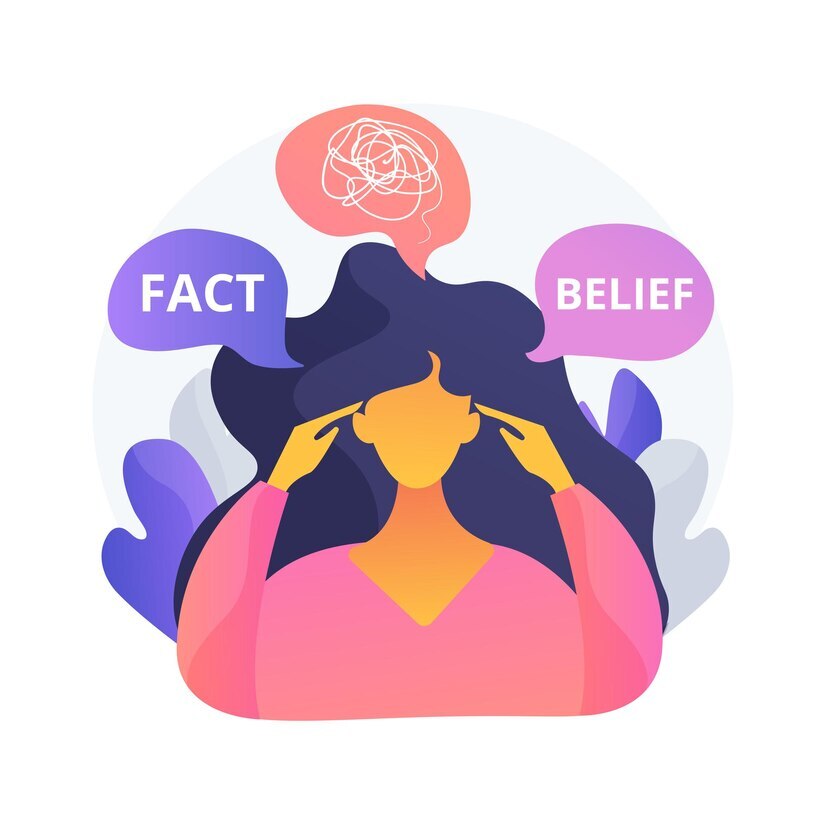Behavioral issues refer to observable actions or conduct that deviate from accepted norms, expectations, or societal standards. In various contexts, such as the workplace, schools, or social settings, behavioral issues can manifest as disruptive or inappropriate behaviors. These may include acts of aggression, defiance, lack of cooperation, or other actions that hinder the smooth functioning of an environment.
Is behavioral issues mental health?
Yes, behavioral issues are closely connected to mental health. Behavioral problems, such as disruptive actions, aggression, or difficulties in social interactions, often signal underlying mental health challenges. Mental health encompasses emotional and psychological well-being, and disruptions in these areas can manifest as observable behaviors. Conditions like anxiety, depression, or attention-deficit/hyperactivity disorder (ADHD) can contribute to the development of behavioral issues.
Causes of Behavioural Issues
If someone is dealing with behavioral issues, “Online counseling” can provide valuable support and guidance in navigating and addressing these challenges. Here are some common causes of Conduct problems:
-
Environmental Factors: Unstable or challenging environments, such as a tumultuous home life, neighborhood violence, or an unsupportive workplace, can contribute to behavioral problems.
-
Family Dynamics: Family issues, including conflicts, inconsistent discipline, or the absence of a positive role model, can significantly impact a person’s behavior.
-
Biological Factors: Neurological or biochemical imbalances in the brain may contribute to Conduct disorders. Conditions like ADHD, autism, or certain mental health disorders can manifest in challenging behavior.
-
Trauma or Abuse: Individuals who have experienced trauma, abuse, or neglect may exhibit Conduct problems as a coping mechanism or as a result of unresolved emotional distress.
-
Learning Disabilities: Learning challenges or disabilities can lead to frustration, impacting behavior in educational settings.
-
Social Influences: Peer pressure, social isolation, or exposure to negative role models can influence behavior, especially in adolescence.
-
Lack of Boundaries: Inconsistent or overly permissive parenting, where there are unclear boundaries or consequences for actions, can contribute to behavioral problems.
-
Substance Abuse: Substance abuse, including alcohol or drug misuse, can significantly impact behavior and contribute to impulsive or risky actions.
-
Emotional Regulation Issues: Difficulty in managing emotions, such as anger or frustration, can lead to behavioral challenges.
-
Cognitive Factors: Cognitive challenges, such as difficulties with impulse control, attention, or problem-solving, can contribute to behavioral issues.
-
Genetic Factors: Some behavioral tendencies may have a genetic component, influencing how individuals respond to stress or external stimuli.
It’s important to recognize that behavioral issues often result from a combination of these factors, and individuals may respond differently to similar circumstances.
Why Are Behavioural Issues Important?
Behavioral issues affecting your marriage? To obtain assistance and direction, think about pursuing “Marriage counselling” .Here are key reasons why addressing behavioral issues is crucial:
-
Individual Well-being: Conduct disorders can negatively impact an individual’s mental health and overall well-being. Addressing these issues is essential for promoting a healthy and fulfilling life.
-
Social Relationships: Behavioral problems can strain interpersonal relationships, both personally and professionally. Addressing these issues fosters healthier connections and improved social dynamics.
-
Academic and Professional Success: In educational and workplace settings, addressing Conduct problems is critical for academic achievement and career success. Positive behavior contributes to a conducive learning or working environment.
-
Emotional Health: Behavioral problems often have roots in emotional challenges. By addressing these issues, individuals can develop better emotional regulation skills and cope with stressors more effectively.
-
Prevention of Escalation:- Unaddressed Behavioral disorders may escalate over time, leading to more severe problems. Early intervention helps prevent the development of more significant challenges.
-
Community Well-being: Behavioral problems can have ripple effects within communities. Addressing these issues contributes to the overall health and well-being of the community, promoting a positive and supportive environment.
-
Reducing Stigma: Addressing Behavioral concerns helps reduce the stigma associated with mental health challenges. Open discussions and interventions contribute to a more inclusive and understanding society.
-
Personal Development: Overcoming behavioral issues often involves personal growth and development. Individuals learn valuable skills in communication, self-regulation, and problem-solving through the process.
-
Quality of Life: Addressing Behavioral concerns improves the quality of life for individuals, allowing them to engage in positive relationships, pursue personal goals, and experience a sense of fulfillment.
-
Educational Success: In the context of education, addressing Behavioral issues is crucial for creating a conducive learning environment, fostering positive peer interactions, and enhancing academic performance.
-
Employability: Individuals with positive behavior and interpersonal skills are more likely to succeed in the workplace. Addressing Behavioral problems is essential for enhancing employability and career advancement.
-
Prevention of Legal Issues: Certain behavioral problems, if left unaddressed, may lead to legal consequences. Intervening early can help prevent legal issues and related challenges.
In conclusion, recognizing and addressing behavioral issues is crucial, as they are often intertwined with mental health. Understanding that observable behaviors can be indicators of underlying emotional and psychological challenges is the first step toward effective intervention.

